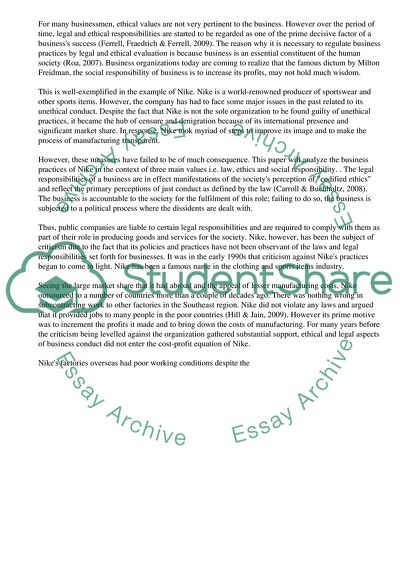Cite this document
(“Integrating Values - The Legality, Morality, and Social Responsibility Essay”, n.d.)
Retrieved de https://studentshare.org/business/1390214-nike-s-controversial-business-activitys-law-and
Retrieved de https://studentshare.org/business/1390214-nike-s-controversial-business-activitys-law-and
(Integrating Values - The Legality, Morality, and Social Responsibility Essay)
https://studentshare.org/business/1390214-nike-s-controversial-business-activitys-law-and.
https://studentshare.org/business/1390214-nike-s-controversial-business-activitys-law-and.
“Integrating Values - The Legality, Morality, and Social Responsibility Essay”, n.d. https://studentshare.org/business/1390214-nike-s-controversial-business-activitys-law-and.


